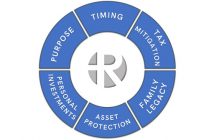
I feel like I’m constantly meeting people who have just moved to Bend. I can’t blame them. Central Oregon is beautiful and Bend is a great place to live, raise a family and start a new business.
If you are new in town, welcome! I hope you feel at home here. If you moved to start a new job, or even your own business, don’t forget that you may be able to deduct your moving expenses on your tax return. You can deduct moving expenses even if you take the standard deduction on your return, instead of itemizing.
Even if you already knew that moving expenses might be deductible on your tax return, you might be unsure about the answers to some common questions, such as:
• Can I deduct my moving expenses?
• What moving expenses can I deduct?
• What moving expenses are not deductible?
• How do I go about deducting my moving expenses, anyway?
If so, you’re not alone. I’ll do my best to walk you through the basics in this article.
Can I Deduct My Moving Expenses?
If you moved to Bend from outside of the area to start a new job or to work in your own new business, there’s a good chance you can deduct your moving expenses on your tax return.
According to the IRS in Publication 521, if your move is closely related to the start of work and you pass both the distance and time tests, you can deduct certain reasonable expenses related to your move.
You can meet the “closely related” standard if you moved within one year of the date that you started work at a new location and your commute from your new home to your new job site isn’t longer than it would have been if you had stayed at your previous home.
To pass the time test, you need to work full time for 39 weeks during the first 12 months after you get to the area around your new worksite. If you’re self-employed, you also need to work full-time for an additional 39 weeks during the first 24 months after you arrive, for a total of 78 weeks in your first 24 months here. You can deduct moving expenses before you meet the time test if you expect to meet the requirements this year (or this year and next year if you’re self-employed).
To pass the distance test, the location of your new job needs to be at least 50 miles farther from your old home than your previous job location was from your prior home. So, if you used to have a 10 mile commute, then the location of your new job needs to be at least 60 miles away from your old home.
I Passed the Tests – So What Can I Deduct?
Congratulations on starting your new job or business in Central Oregon! Start hunting down those receipts for your moving expenses because the IRS allows you to deduct the reasonable expenses of moving your stuff and traveling to your new home.
That means you can deduct things like packing materials (boxes, bubble wrap, tape etc.), the cost to hire professional movers (or to rent a truck) and costs to ship your car and even your pets. You can also deduct storage costs between the time you moved out of your old house and into your new home.
If you drive your car to your new home, you can deduct either the actual expenses for gas and oil or use the standard mileage rate of 24 cents a mile. Also, parking fees and tolls paid during your move can be deducted.
Don’t forget, you can deduct reasonable lodging costs during your move.
So I Can Deduct All My Moving Expenses, Right?
Moving expense deductions can be exciting, but don’t get carried away. The IRS limits your deductions to “reasonable expenses” and specifically lists some moving expenses that are not deductible.
These nondeductible expenses include depreciation, insurance and general repairs or maintenance to your car if you drive your own vehicle. Additionally, if you took a detour to do some vacationing or sightseeing on your way to your new home, you can only deduct the costs you would have incurred had you taken the most direct route.
Plus, you can’t deduct your food costs during your move. So don’t make the mistake of trying to deduct them on your return. Also, if your employer paid for, or reimbursed, some or all of your moving expenses, then you can’t claim those amounts as deductions.
How Do I Deduct Moving Expenses on My Tax Return?
So, you’ve got all your receipts and you’ve sorted out all those nondeductible expenses? Great! Now you’re ready to take those deductions on your tax return. Report your moving expenses by completing Form 3903 and then entering the amount on line 26 of your Form 1040.
You can deduct moving expenses even if you plan on taking the standard deduction on your tax return. Since it’s an “above-the-line” deduction that reduces your adjusted gross income (AGI), it may even help you get more itemized deductions.
To learn more about deducting moving expenses on your tax return, the full text of Publication 521 is available on the IRS website. If you have questions about your specific situation, talk to your CPA and get moving on deducting those moving expenses!
Joshua A. Jordan, CPA prepares tax returns for individuals and small businesses from his office in beautiful downtown Bend. 541-639-3598, www.joshuajordancpa.com.





